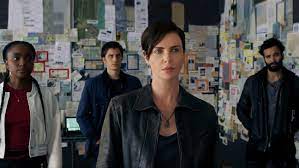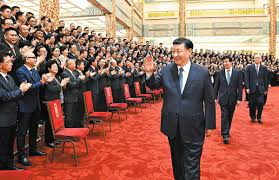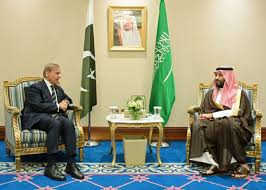How Italy rebooted Rome’s legendary Cinecittà Studios

Gianmaria Tammaro
Rome: Visitors to the Rome Film Festival and MIA Market last month couldn’t have avoided them. They were everywhere in the eternal city: bright red billboards celebrating Cinecittà, the city’s legendary film studio. They weren’t promoting any new film or TV series shooting at the fame backlot. Instead the ads were part of a campaign, call it Cinecittà reboot, intended to return the Italian studio to its place atop the world stage.
Things have been quiet for a while around Cinecittà. Now the studio that write the history of international cinema with such productions as Ben-Hur, Cleopatra, Once Upon a Time In America and Gangs of New York, is looking to take back its place atop the world’s stage.

The new push comes amid a shakeup in the Italian film and TV industry, a market revolution in which Cinecittà intends to be a driving force. In the words of Toni Servillo’s character Jep Gambardella in Paolo Sorrentino’s The Great Beauty, they don’t “just want to live the high life [they] want to be king of the high life.”
Over the past few years, Cinecittà has grown enormously. The increase in demand for new series and movies —driven by global streamers— has put a premium on studio space.
“We’ve gone from a rather precarious situation, with 40-50 percent occupancy [of our soundstages], to about 15 productions per day,” says Cinecittà CEO Nicola Maccanico. “The world has completely changed for us. Cinecittà is completely sold out. We’re working at full speed.”

Under Maccanico, Cinecittà has hosted Angelina Jolie’s Without Blood, her adaptation of Alessandro Baricco novel, and M. Son of the Century, Joe Wright’s 8-part TV series on the rise of Mussolini, featuring Old Guard star Luca Marinelli as Il Duce, being produced for Sky and Fremantle.
Previously, Cinecittà hosted Paolo Sorrentino’s The Young Pope for HBO, recreating entire sections of the Vatican on their backlot. George Clooney was here to shoot his Catch 22 reboot. Netflix has been busy with such originals as Luna Nera, Luna Park and Fedeltà.
Upcoming projects already booked in include Edward Berger’s Conclave, with Ralph Fiennes and Stanley Tucci; Bill Holderman’s Book Club 2, with Diane Keaton, Jane Fonda, Candice Bergen and Mary Steenburgen; and Saverio Costanzo’s Finalmente l’alba with Lily James and Willem Dafoe.
In February, Cinecittà signed a five-year deal with production giant Fremantle that will see continuous rental of six sound stages at the Rome studios, a pact that crowned Cinecittà revamp to transform the storied backlot into a state-of-the-art filming facility.
Maccanico, a former exec at Warner Bros., Sky Italia and Italian distribution and sales outfit Vision, has the backing of Italy’s culture ministry (the studio is state-owned) to use some $300 million in investment from the European Union’s post-pandemic recovery fund (PNRR) to overhaul several of the studio’s existing 19 sound stages and build five new ones.
Speaking at the Venice Film Festival, Maccanico said the studio was already profitable and at full capacity.
The Hollywood Reporter spoke to Maccanico about his plans to reboot Italy’s legendary studio.
The true distinction, in my opinion, is between productions with international appeal and the local ones. The first ones make up 80 percent of our clients. From Angelina Jolie, who is shooting Without Blood, to Saverio Costanzo (Hungry Hearts, My Brilliant Friend) who is shooting Finalmente l’alba, his new film. And then we have Italian movies like Paola Cortellesi’s directorial debut.
The type of production, whether it’s meant for cinema or TV, doesn’t matter. Cinecittà is a solid partner for any kind of project. As we are currently talking about movies, I can mention Angelina Jolies’ Without Blood and Saverio Costanzo’s Finalmente l’alba. Up next is M. Son of the Century, the series on Mussolini based on the book by Antonio Scurati and directed by Joe Wright. But movies are absolutely making a big comeback on platforms. Some very interesting data tells us that series are typically watched only until the third episode; whereas movies are usually watched till the end.
Alberto Barbera, the Venice Film Festival director, has said Italian cinema suffers from quantity over quality when it comes to production. What is Italian cinema lacking in your opinion?
What is missing, right now, is time. We cannot and must not generalise, but it’s pretty obvious. To make great movies or series, one needs time. Time allows you to delve into your work, encouraging an exchange between producers, distributors and creatives. These past years, because of the pandemic, we have all sped up the production process. But the greatest movies in the history of cinema required time to become what they became. This hurry has negatively impacted the quality of these productions.
Certain film events, like the Marvel movies, are as strong as ever. But other types of movies are struggling. We need change to keep cinemas alive. Above all we need to improve the experience of going to the cinema. We have good multiplexes here in Italy. But we haven’t come up with a solution for city theaters. It’s hard to convince people to go to theaters when they are extremely similar to the experience in their own living rooms.
I don’t think so. I believe there is awareness of the importance of these platforms reaching Italy and their impact on our growth. Nowadays, Italians work more. Investments [in those platforms?] didn’t hinder the local industry.
Our competitors are the big European studios. In a few years, we will be able to asses the situation in terms of profits. At the moment, due to the high demand, the competition is very limited. In this year and half, I have never felt as though we had lost a project to a competitor; we are growing and we are growing a lot. When this growth slows down, then reorganization of our business will become vital.
Our job is a team effort, and we’re all working together to help Cinecittà grow. When I used to work for Warner Bros, explaining my task was easy: everyone knows Warner Bros. It was harder with Vision: because it was a new reality, and we were still in midst of building it up. It was similar with Sky: while it is well known across Europe, it is less known in America. With Cinecittà everyone immediately knows what I’m talking about. Our brand, our name, is great. I’m making an effort now to use our history as little as possible and focus on the present.





